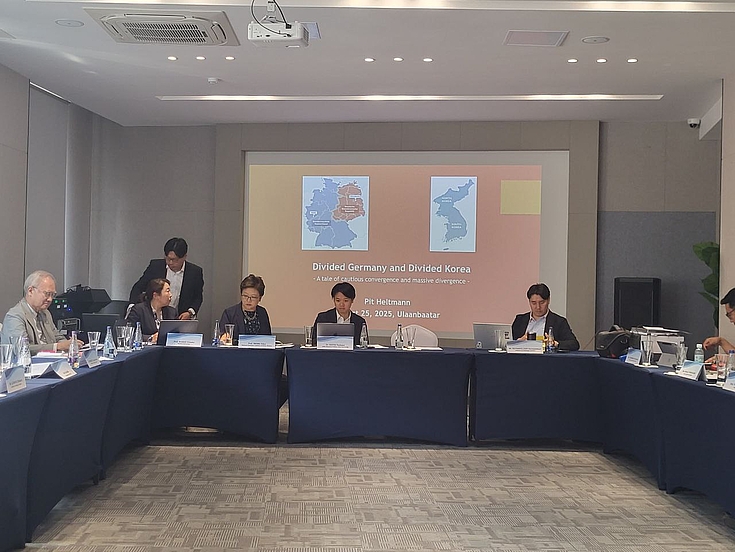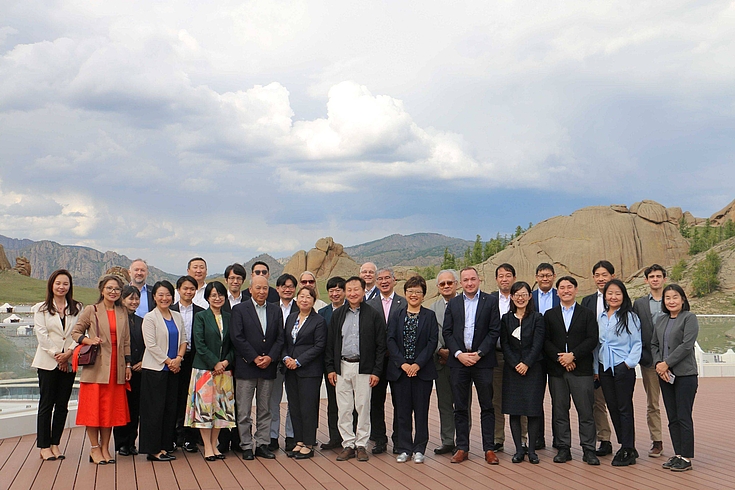International Conference
50 Years Helsinki Final Act: European Experience and Asian Perspectives
The aim of the conference was to reflect on the historical significance of the Helsinki Final Act of 1975 while also discussing the applicability of its experiences to current security policy and cooperation-related challenges in Asia.
High-level international participation
Over the two conference days, numerous scholars and diplomats from Europe, Japan, and Mongolia took part. Among the speakers were:
- Prof. Yoko Iwama (GRIPS, Tokyo),
- Prof. Nobumasa Akiyama (Hitotsubashi University),
- Prof. Ken Jimbo (Keio University),
- Dr. Bart Gaens (Finnish Institute of International Affairs),
- Ambassador (ret.) Pit Heltmann (Germany),
- as well as representatives of the ISS and the HSS.
Topics and discussions
The conference was structured into several thematic panels. Topics discussed included:
- the origins and historical impact of the Helsinki Final Act,
- arms control and confidence-building measures,
- parallels between divided Germany and the Korean Peninsula,
- the role of ASEAN in security cooperation,
- rule of law and development in Asia,
- as well as Mongolia’s foreign policy in the context of the “Third Neighbor Policy” and a possible OSCE membership.
The event demonstrated that the experiences of the Helsinki Process can still provide valuable insights for Asia fifty years after the signing of the Final Act. At the core was the question of how principles such as dialogue, cooperation, and the rule of law can contribute to stability in the region in times of geopolitical tensions.
With this conference, the ISS, the Hanns Seidel Foundation Mongolia, and their Japanese partner institutions made an important contribution to international exchange on peace, security, and cooperation.



